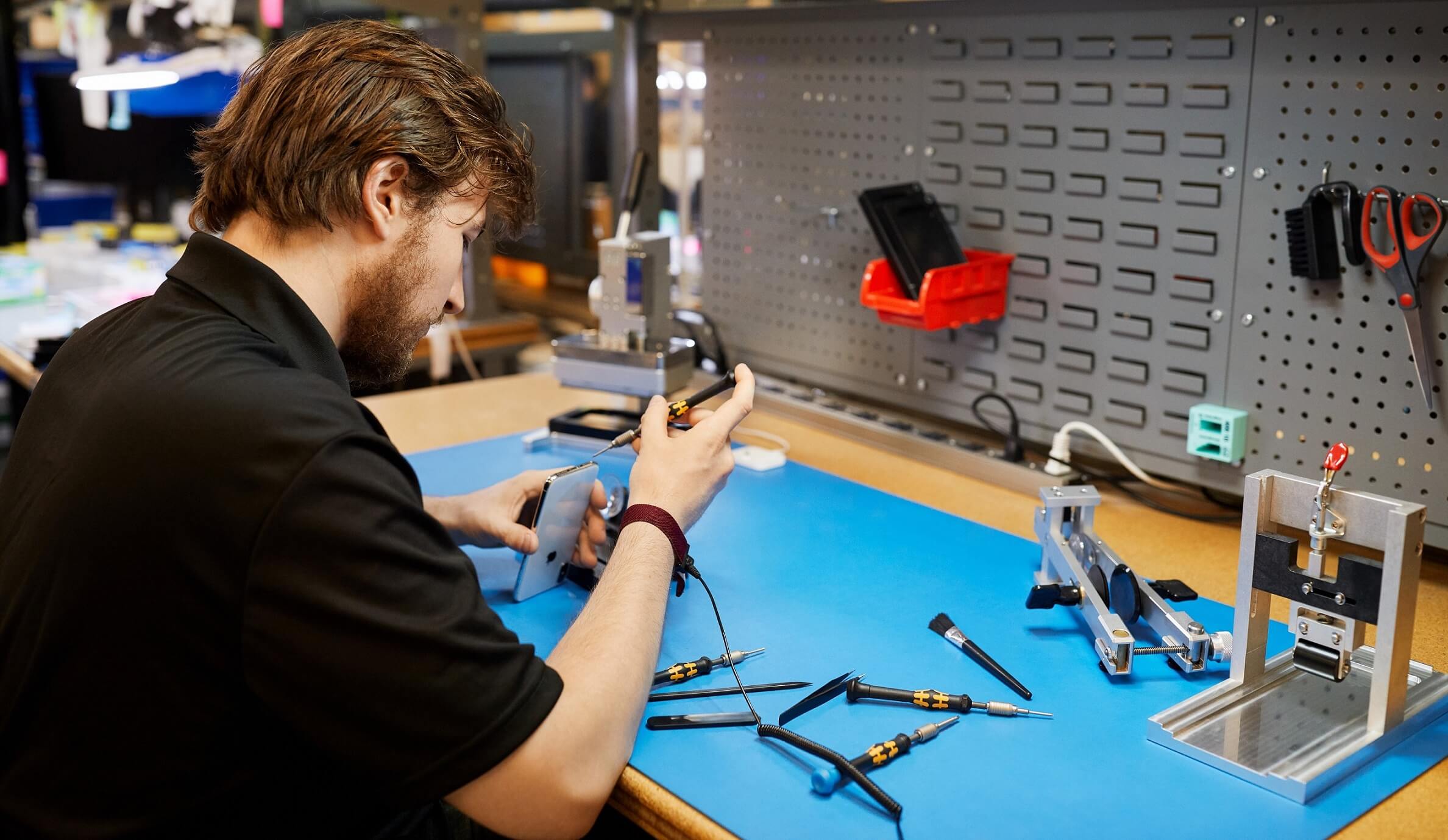In brief: Apple has launched a new program that allows small repair shops to get certified and get access to the same resources available to authorized ones. As always, there's a catch - this will only apply to out-of-warranty repairs and will inevitably increase the price of servicing your device. Still, it's a step in the right direction for Apple, and the company is getting good publicity and additional money from repairs.
Apple doesn't have the best track record when it comes to supporting independent repair shops. The Cupertino company has made a number of controversial moves in recent years, from introducing hardware kill switches in Macs and software locks in iPhones, to outright suing repair shops that tried to get a hold of spare parts that Apple didn't provide to third-parties. It also doesn't help that Apple lobbyists have stifled attempts at a right-to-repair law for years.
To Apple's credit, it has made some baby steps in the right direction with the move to more permissive iPhone repair policies and the expansion of its repair services to all Best Buy stores in the US. Today, it makes a more significant step by announcing a new program that will allow independent repair shops to provide official repairs for common problems that affect out-of-warranty iPhones.
The company says it will give small and big repair businesses access to the same genuine Apple parts, tools, training, and diagnostic resources that are currently available to authorized Apple repair service providers. Apple has been piloting the program with 20 independent stores across North America, Asia, and Europe, and says it is now open in the US with plans to gradually expand to other countries in the near future.
Previously, Apple had thrown a lot of repair businesses under the bus by being too restrictive about giving them access to official parts and tools, or by asking them to pay for the privilege of being part of its "authorized repair providers" club. Even then they'd be limited to completing the repairs, which was unacceptable to many whose repair business was their bread and butter. That pushed some of them to acquire the parts from grey market sources which is obviously less than ideal.
In contrast, legitimate repair businesses can join Apple's new program for free. They'll have to train their employees to become Apple-certified technicians, but the good news is that the online training process is also free. Then they'll get access to genuine parts at the same price as other authorized repair shops, although it should be noted that Apple reserves the right to deny anyone they want, so right-to-repair legislation is still important to balance things out.
This is all good news, but there are still a couple of issues that have already invited some criticism from the repair industry. iFixit's chief editor, Kyle Wiens noted that "this leaves Apple customers who want to perform their own repairs in the cold."
There's also the issue of cost - iFixit got its hands on documents that show a broad range of prices that start at $16-$33 for batteries (iPhone 6 - iPhone XS) and go up to $350 for an iPhone XS Max display. This means repair shops are going to have to adjust their prices accordingly in order to survive and make a profit. The repairs will get more expensive, but at least you'll have the peace of mind that you won't get a lower quality part or one that could be used for malicious purposes.
